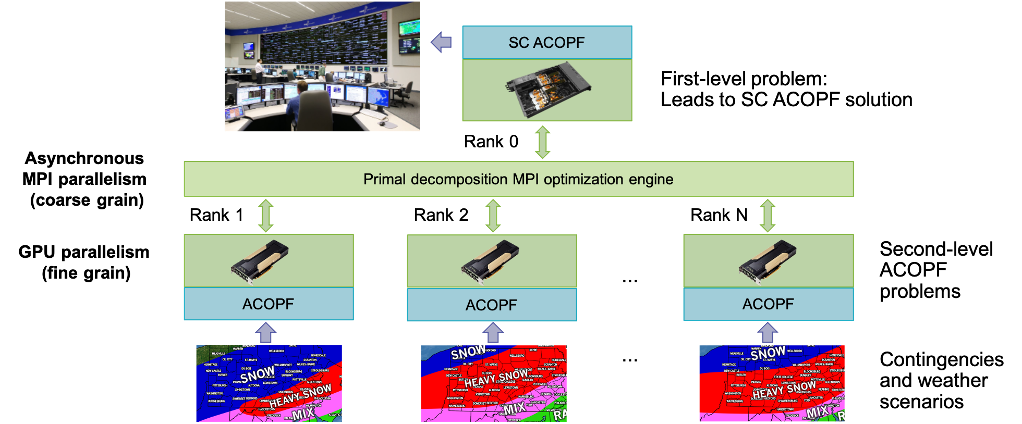The Science
A multi-institutional team, featuring ORNL’s Slaven Peles in a key leadership position, has delivered transformational computational capability for power grid planning and operation within ExaSGD, a subproject of Exascale Computing Project. Along the way, the team has solved several mathematical and computational problems including two-level optimization for optimal power flow analysis over an ensemble of contingencies, fine grain parallel evaluation of irregular network models, and parallel linear solve strategies for extremely ill-conditioned systems. The team delivered security constrained optimal power flow analysis for Texas grid with 10,000 contingencies/weather scenarios running within 15min wall clock time.
The Impact
This capability allows for extensive scenario exploration within real time and is critical for resilient operation of a decarbonized grid. Renewable generation introduces significant new uncertainties and faster dynamics that cannot be managed with existing method and tools.

PIs/Facility Leads: Chris Oehmen (PNNL), Slaven Peles (ORNL)
Publication for this work: Abhyankar et al. "Evaluation of AC optimal power flow on graphical processing units." Proceedings of 2021 IEEE Power & Energy Society General Meeting (2021); Świrydowicz et al. "Linear solvers for power grid optimization problems: a review of GPU-accelerated linear solvers." Parallel Computing (2021): 102870; Wang at al. "An asynchronous distributed-memory optimization solver for two-stage stochastic programming problems." 2021 20th International Symposium on Parallel and Distributed Computing (ISPDC). IEEE, 2021.


